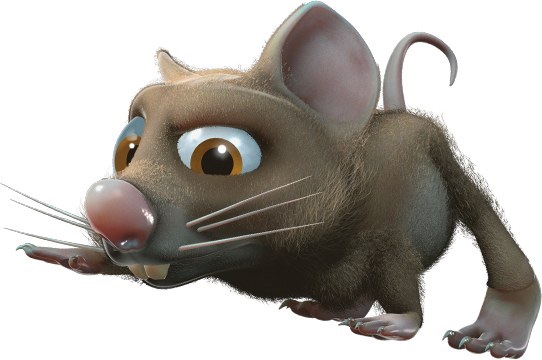Dangers of Raccoons & Diseases They Carry

Public Health Concerns for Raccoons Exist with Good Reason but There are Ways to Protect Ourselves & Our Homes
Raccoons are one of the many critters who have received a slew of nicknames over the years.
“Masked bandit” and “trash panda” have become the dominant nicknames as of late — but the potential dangers of these animals is no laughing matter.
These furry critters can carry harmful diseases and viruses that could be incredibly dangerous to humans.
When it comes to public health concerns and raccoons, the rabies virus is usually the first worry to come to mind. But the masked critter can carry a variety of diseases that cause concern for humans and other animals.
Diseases Carried by Raccoons
Rabies
Raccoons are a nuisance wildlife animal that is on the list of warm-blooded animals that can carry rabies. Other animals that carry rabies includes skunks, squirrels, and chipmunks — and many others.
Many of us have heard the old wives’ tale that if a raccoon is active during the day that it has rabies. However, that isn’t necessarily true.
Although they are primarily nocturnal, raccoons can be spotted during the day.
Signs of rabies in raccoons include discharge coming from the eyes and mouth in addition to matted or wet fur around the face.
If a raccoon is infected with rabies, it is possible to infect another animal or human through a bite. There is also a chance to contract the virus if there has been contact with fecal matter and/or saliva.
Signs of rabies in humans include fever, headache, agitation, confusion, nausea, and vomiting.
If you spot a raccoon in your home or business, you should never approach the critter to check for signs of rabies. You are advised to contact trained professionals to safely investigate the situation and remove the animal(s) in a humane manner.
Raccoon Roundworm
Roundworms are one of the most common parasitic worms.
In fact, there are more than 15,000 species of roundworms. Most commonly, people hear about roundworm parasites when discussing dogs, cats, or livestock.
Raccoon roundworm (Baylisascaris procyonis) is becoming a growing concern for homeowners and business owners since the parasite is found in feces and can then be passed to humans or animals. It is also fairly common, making professional removal essential.
The parasite can be transmitted through ingesting or inhaling the roundworm eggs.
While infections in humans are rare, they can happen. And they can be quite severe if the parasite were to invade certain areas of the body.
Non-specific signs and symptoms can appear as soon as one-week post-infection. Depending on the number of larvae and location in the body, signs and symptoms may include nausea, fever, and lethargy.
- Ocular Larva Migrans: Although rare, infection of the eye can lead to ocular larva migrans, a condition that can lead to loss of visual acuity, blindness, photophobia, ocular pain, among other issues.
- Visceral Larva Migrans: Larvae can lead to inflammatory reactions in organs and lead to tissue damage. Skin infection and inflammation is also possible.
- Neural Larva Migrans: Infection can lead to acute eosinophilic meningoencephalitis, which is meningitis with a high percentage of eosinophils (a type of white blood cell) in the cerebrospinal fluid (CSF). It can also lead to weakness, ataxia, seizures, or coma.
Leptospirosis
Coming into contact with the urine of an infected raccoon, or even water, soil, or food that has been contaminated with their urine can lead to an infection in humans or other animals.
Leptospirosis is a blood infection caused by the bacteria Leptospira. Infections can lead to conditions like meningitis or kidney damage in humans.
Other symptoms include muscle pain, chills, high fever, or headache.
Without treatment, leptospirosis can lead to failure of the liver and/or kidney, the infection can possibly be fatal.
Canine Distemper
Canine distemper can be spread when animals such as unvaccinated dogs come into contact with body fluids or feces from the infected raccoon.
Symptoms of canine distemper include discharge from the nose and/or eyes, rough coat of fur, emaciated appearance, and disorientation or wandering aimlessly.
Even though it cannot be transmitted to humans, it’s important to keep away from animals infected with canine distemper.
The animal may appear calm but can become aggressive if approached too quickly or if it feels threatened. The best prevention for your dog is to keep up with its vaccinations.
Raccoon Removal & Exclusion
Telling you to simply keep your distance from the nuisance wildlife animal isn’t the solution to truly protecting your home, business, or loved ones.
To help prevent the spread of diseases, it’s important to keep raccoons out of attics, crawl spaces, or other areas of the home or business.
Catseye Pest Control has developed raccoon removal services and exclusion services to keep raccoons out permanently.
Our process begins with humanely removing the raccoon(s) from your property. Once the animal is safely removed and relocated, our technicians will then clean messes made by the raccoons, including fecal matter and urine.
Clean-up services can be utilized throughout the home, business, or any other structure when the raccoons had invaded.
In addition to cleaning, we can also repair any damage that was caused by the critter so that your home or business looks the way it did before the raccoons moved it.
The final step in our process is to completely exclude the unwanted animal (and others) from your home.
To do this, we use our Cat-Guard Exclusion Systems, a permanent wildlife barrier that protects homes, businesses, and other structures from being taken over by rodents and nuisance wildlife.
The chemical-free solution is a natural approach to sealing up potential points of entry.
Contact our technicians today to learn more about our eco-friendly approach and how we can protect your home, business, and guests from raccoons and the viruses they can carry.






